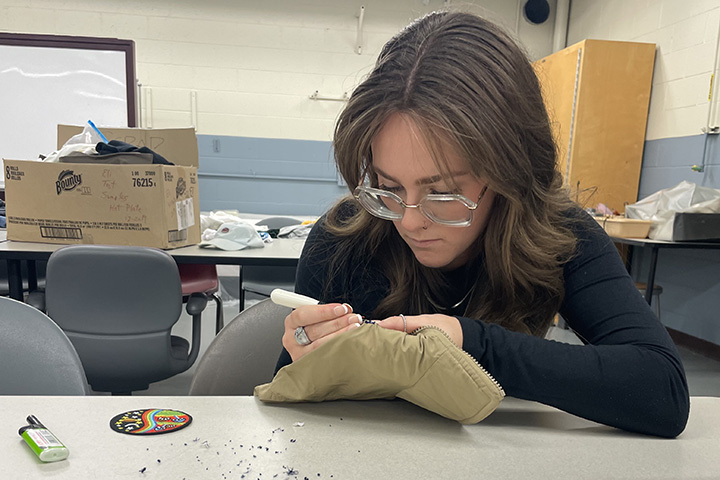Teaching a new way to look at writing
Writing leader says learn to love artificial intelligence
Troy Hicks had a message about artificial intelligence for teachers attending a professional development event on Central Michigan University’s campus: Don’t fear it; look to its potential.
The teachers were participants in “Writing our Futures,” an intensive multi-day professional development institute hosted through a partnership between the Chippewa River Writing Project and The Literacy Center. Both are part of the College of Education and Human Services.
Most literacy curriculum focuses on reading, with too little on writing, said Chad Waldron, co-director of The Literacy Center. The goal of the institute was to help correct that imbalance and encourage kids to make writing an integral part of their lives.
That starts with a broader understanding of what is meant by writing, he said. Today, writing can incorporate more modern concepts made more accessible by technology, such as pictures, video and even memes.
.jpg?sfvrsn=6dec9e7c_6)
It’s a much different understanding than what is a genre of writing exclusive to schools, said Meghan Block, co-director of the Literacy Center. Book reports are an example.
“Outside of school, does that necessarily exist,” she said.
AI can play a role in that. At the start of his presentation, Hicks, director of the Chippewa River Writing Project, asked the teachers to write down their impressions of AI as it related to teaching writing. The responses included words and phrases like “cheating,” “replacing” and even “final nail in the coffin.” Later, the teacher who wrote that explained that he meant AI could kill off a sense of authenticity in writing.
Hicks’ presentation focused on integrating AI tools into the writing process rather than using them to create a finished product. AI has the potential to help students know how to begin a writing project, which is valuable in that many students often struggle with getting started, Waldron said.
At the end of the presentation, Hicks asked the teachers to reassess their perceptions of AI’s role in teaching writing. This time, participants used words like “useful,” “creative” and “flexibility” to describe it.
The institute is an annual program of the Chippewa River Writing Project, which itself is a local center for the National Writing Project. Its goal is to promote the best practices in teaching writing, Hicks said.
There is an overlap between its mission and The Literacy Center, which exists to support literacy in local communities. While the CRWP provides resources primarily to teachers, The Literacy Center also connects children to tutors.
This is the first year the two have collaborated on the CRWP’s summer institute. The collaboration was made possible by an anonymous donation. The donation covered the institute’s costs, including stipends for participating teachers.




